Програм Саветовања обухвата следеће научне области:
- АХ – Аналитичка хемија
- БХ – Биохемија
- ЕХ – Електрохемија
- ЗХ – Зелена хемија
- МХ – Медицинска хемија
- НИХ – Настава и историја хемије
- НХ – Неорганска хемија
- ОХ – Органска хемија
- ТХ – Теоријска хемија
- ФХ – Физичка хемија
- ХЖС – Хемија животне средине
- ХИ – Хемијско инжењерство
- ХТМ – Хемија и технологија материјала
- ХТХ – Хемија и технологија хране
- ТИ – Текстилно инжењерство
Програм
Субота, 8. јун
09:00-12:45 Регистрација и постављање постера
(хол факултета)
10:00-10:30 Свечано отварање
(амфитеатар)
10:30-11:45 Сесија 1 (амфитеатар)
Председавајући: Др Нико Радуловић
10:30-11:15
Др Свилен Симеонов
Институт за oрганску хемију са центром за фитохемију, Бугарска академија наука, Софија, Бугарска
Transformations and applications of biomass-derived C5 and C6-furanic platform chemicals
11:15-11:45
Др Драган Златковић
Природно-математички факултет у Нишу – Универзитет у Нишу
О конфигурацији природних 2,6-циклокупаран-3-ола: коначно разрешење спорне ситуације
11:45-12:15 Пауза за кафу (хол факултета)
12:15-12:45 Сесија 2 (амфитеатар)
Председавајући: Др Александра Дапчевић
12:15-12:45
Др Миха Буклески
Природно математички факултет, Институт за хемију, Скопље, РС Македонија
Hybrid organic-inorganic perovskites: synthesis and spectroscopic properties
12:45-13:45 Постерска сесија 1 (сала бр. 24)
(АХ, НИХ, ЕХ, ФХ, ХТХ, ХТМ, ХИ, ЗХ)
13:45-14:45 Пауза за ручак
14:45-15:15 Сесија 3 (амфитеатар)
Председавајући: Др Марија Генчић
14:45-15:15
Др Татјана Тртић-Петровић
Институт за нуклеарне науке „Винча“, Институт од националног значаја за Републику Србију – Универзитет у Београду
Зелене екстракционе методе: прогрес и изазови
15:15-16:45 Панел дискусија (свечана сала 100)
Зелена хемија – активности и изазови
– Проф. др Славица Ражић, Универзитет у Београду – Фармацеутски факултет, члан IUPAC комисије за зелену хемију и одрживи развој,
– Проф. др Игор Опсеница, Универзитет у Београду – Хемијски факултет, професор на предмету Зелена хемија,
– др Маријана Поњавић, виши научни сарадник, Универзитет у Београду – Институт за молекуларну генетику и генетичко инжењерство, Група за екобиотехнологију и развој лекова,
– др Јелена Милић, виши научни сарадник, Универзитет у Београду – ИХТМ, координатор тима на пројекту ГЛОБАЛНИ ПРОГРАМ ЗА ЗЕЛЕНУ ХЕМИЈУ И ИНОВАЦИЈЕ,
– Игор Петровић, компанија Е-Рециклажа 2010, менаџер сакупљања.
16:45-18:00 Сесија 4 (амфитеатар)
Председавајући: Др Александар Окљеша
16:45-17:00
Др Срђан Бједов
Природно-математички факултет – Универзитет у Новом Саду
„У лабу” – научно популарни подкаст
17:00-17:15
Др Слађана Ђорђевић
Природно-математички факултет – Универзитет у Крагујевцу
Структурна зависност енергије триплетних стања у коњугованим молекулима
17:15-17:30
Др Душан Маленов
Хемијски факултет – Универзитет у Београду
Природа јон-π интеракција (полу)седвич-једињења – XEDA студија
17:30-17:45
Др Марко Родић
Природно-математички факултет – Универзитет у Новом Саду
Кристална структура новог хибрида фероцена и тиазол[3,4-a]пиразин-5,8-диона
17:45-18:00
Мср Катарина Постоловић
Природно-математички факултет – Универзитет у Крагујевцу
Симултано одређивање допамина, серотонина, аскорбинске киселине и нитритног јона применом модификоване GCE
20:00 Свечана вечера (ресторан Алексића Тврђава, Булевар Николе Тесле бб)
Недеља, 9. јун
09:00-13:00 Регистрација и постављање постера
(хол факултета)
10:00-11:30 Сесија 5 (амфитеатар)
Председавајући: Др Душан Сладић
10:00-10:45
Др Николај Василев
Институт за органску хемију са центром за фитохемију, Бугарска академија наука, Софија, Бугарска
Recent advances in stereodynamics and conformational analysis of new functional materials by dynamic NMR and theoretical calculations
10:45-11:15
Др Мирјана Радановић
Природно-математички факултет – Универзитет у Новом Саду
Координациона хемија Шифових база – примена у соларним технологијама
11:15-11:30
Представљање спонзора 60. Саветовања Српског хемијског друштва
11:30-12:00 Пауза за кафу (хол факултета)
12:00-13:00 Сесија 6 (амфитеатар)
Председавајући: Др Видослав Декић
12:00-12:30
Др Татјана Анђелковић
Природно-математички факултет у Нишу – Универзитет у Нишу
Фталати: извори, миграција, одређивање и штетно дејство
12:30-13:00
Др Душица Родић
Природно-математички факултет – Универзитет у Новом Саду
Вишеструки показатељи ученичких постигнућа у хемији
13:00-13:45 Панел дискусија (амфитеатар)
Сарадњом до бољих решења у настави хемије
Председавајући: Др Душица Родић
– Проф. др Драгица Тривић, Хемијски факултет – Универзитет у Београду, професор методике наставе хемије, чланица IUPAC-ове Комисије за наставу хемије, чланица Радне групе СХД-а за реформу наставе хемије и уредник Хемијског прегледа,
– Проф. др Данијела Костић, Природно-математички факултет у Нишу – Универзитет у Нишу, професор методике наставе хемије и чланица Радне групе СХД-а за реформу наставе хемије,
– Проф. др Сузана Јовановић-Шанта, Природно-математички факултет – Универзитет у Новом Саду, председник СХД – Хемијског друштва Војводине, подпреседник СХД-а, координатор Радне групе СХД-а за реформу наставе хемије и чланица Одбора IUPAC-a за хемију и здравље људи,
– Проф. др Душан Сладић, Хемијски факултет – Универзитет у Београду, председник СХД-а.
13:45-14:45 Постерска сесија 2 (сала бр. 24)
(МХ, БХ, НХ, ОХ, ТИ, ТХ, ХЖС)
14:45-15:15 Пауза за ручак
15:15-16:45 Сесија 7 (амфитеатар)
Председавајући: Др Татјана Анђелковић
15:15-15:30
Др Биљана Арсић
Природно-математички факултет у Нишу – Универзитет у Нишу
Инхибиција активности бутирилхолинестеразе од стране абамектина и боскалида: компјутерска и in vitro проучавања
15:30-15:45
Др Јелена Кесић
Природно-математички факултет – Универзитет у Новом Саду
Утицај естарских група на биолошку активност аналога клеистанолата
15:45-16:00
Мср Самира Плојовић
Државни Универзитет у Новом Пазару
Антимикробна активност салвипизона: in silico и in vitro испитивања
16:00-16:15
Мср Ђорђе Јанковић
Природно-математички факултет – Универзитет у Новом Саду
Нови стероидни карбамати као потенцијални лиганди за естрогене рецепторе
16:15-16:30
Мср Алекса Аларгић
Природно-математички факултет – Универзитет у Новом Саду
Халогеновани тиазолни фуро-диоксолани и in silico претрага за њиховим потенцијалним метама
16:30-16:45
Др Данијел Милинчић
Пољопривредни факултет – Универзитет у Београду
Добитник медаље Српског хемијског друштва за прегалаштво и успех у науци 2023. године
Примена UHPLC Q-ToF MS за анализу биоактивних једињења у храни
16:45-17:15 Награде и свечано затварање (амфитеатар)
Предавачи
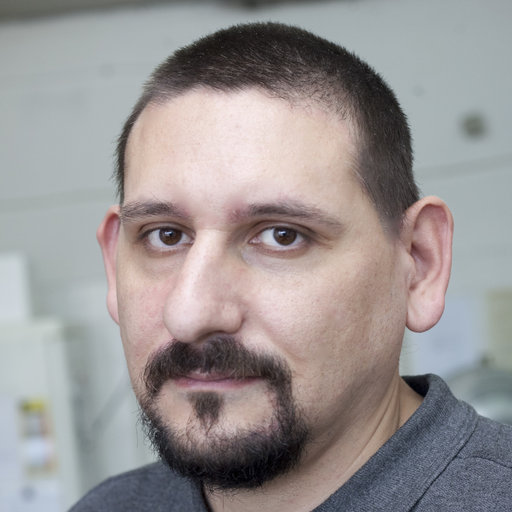
Dr Svilen Simeonov
Institute of Organic Chemistry with Centre of Phytochemistry, Bulgarian Academy of Sciences, Sofia, Bulgaria
Svilen P. Simeonov graduated from Sofia University in 2004 and joined the Institute of Organic Chemistry with Centre of Phytochemistry,Bulgarian Academy of Sciences, as a research fellow. In 2010 he moved to the University of Lisbon and received his Ph.D. in 2014 under the supervision of Prof. Carlos A. M. Afonso. Afterward, he returned to Sofia and currently holds a professor position at the Institute of Organic Chemistry with Centre of Phytochemistry. Svilen Simeonov co-authored 46 research paper and several book chapters that has been cited over 2200 times. In 2015 he received UNESCO/PhosAgro/IUPAC Green Chemistry for Life award for leading young researchers and more recently acad. “Bogdan Kurtev” award for achievements in organic chemistry. His research interests are mainly focused on green chemistry methodologies, flow chemistry, valorization of natural resources, and asymmetric catalysis.
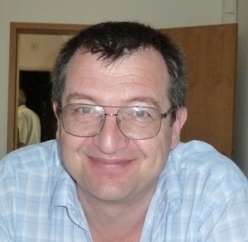
Prof. Dr Nikolay Vassilev
IInstitute of Organic Chemistry with Centre of Phytochemistry, Bulgarian Academy of Sciences, Sofia, Bulgaria
Nikolay G. Vassilev graduated from Sofia University in 1988 and joined the Institute of Organic Chemistry with Centre of Phytochemistry, Bulgarian Academy of Sciences, as a chemist in the NMR laboratory. In 1994 he received his Ph.D. under the supervision of Prof. Valentin Dimitrov. Since 2017, he has been a professor in Bulgarian NMR Centre at the Institute of Organic Chemistry with Centre of Phytochemistry. Nikolay Vassilev is the co-author of 130 scientific articles, which have been cited over 1000 times. His research interests are mainly focused on molecular mobility – classical dynamic NMR for the investigation of tautomeric and conformational equilibria; NMR-Based Metabolomics of natural extracts and biofluids; NMR spectroscopy with in situ UV/Vis irradiation; NMR methodology and application of computational methods for structural elucidation and for proving mechanisms of organic rearrangements.
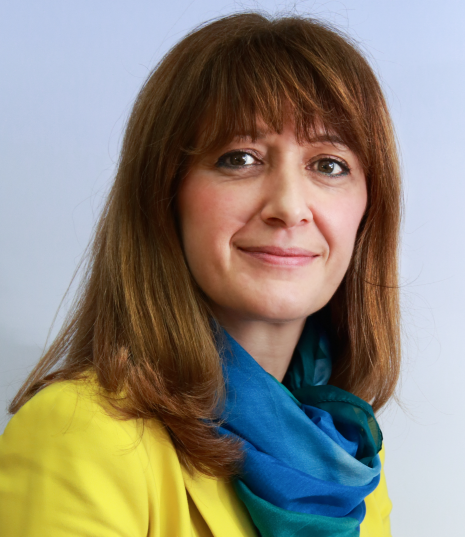
Dr Tatjana Anđelković
Department of Chemistry, Faculty of Sciences and Mathematics, University of Niš, Niš, Serbia
Tatjana Andjelkovic is full professor at University of Niš Faculty of Science and Mathematics, responsible for several graduate and post graduate courses: Environmental Chemistry, Environmental Chemical Pollutants, Soil Chemistry. Autor and co-author of more than 50 scientific publications in SCIE list journals and more than 100 publications reported at international or national conferences. H-index (Scopus): 13, Citations (Scopus): 459. Person in charge for Mass Spectrometry Laboratory at Faculty of Science and Mathematics, Authorized Person of NGO Aqualeer – Serbia, member of Chemical-ecological Center of town Niš, member of Chairmenship of Serbian Chemical Society Branch in Niš and a member of International Humic Substances Society. Her scientific interest covers: environmental chemistry, mass spectrometry in environmental pollutant detection, food quality control, water and soil quality.
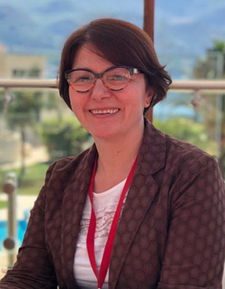
Dr Tatjana Trtić-Petrović
Vinča Institute of Nuclear Science, Institute of National Importance, University of Belgrade, Serbia
Tatjana Trtić-Petrović is a principal research fellow at the Laboratory of Physics, Vinča Institute of Nuclear Sciences, and the Chair of the Green Chemistry Division of the Serbian Chemical Society. She is involved in teaching „Green Chemistry and Ionic Liquids“ in the doctoral academic studies of chemistry at the Faculty of Sciences, University of Novi Sad. She graduated in 1990 from Faculty of Chemistry, University of Belgrade, and she received her Ph.D. from the Faculty of Physical Chemistry, University of Belgrade in 2000. She had a DAAD Foundation scholarship and spend 6-months at the Institute for Technology in Karlsruhe, Germany. As part of her postdoctoral training, she worked for two years (2001-2004) at the Department of Analytical Chemistry, Lund University, Sweden, as a Werner Green Foundation fellow. She has extensive international experience through bilateral projects with Greece, France, and Russia, as well as through ERASMUS programs and several COST actions. She has authored over 55 publications in high-impact international journals, cited 1003 times, and has an H-index of 19 (according to Google Scholar). Her research focuses on: developing green and sustainable processes using membrane extraction in contactors with microporous fibers; creating integrated processes utilizing aqueous biphasic systems with ionic liquids for extracting organic and inorganic compounds; developing sustainable extraction methods using biocompatible ionic liquids to isolate and recycle various compounds from food and biomass; mapping technologically critical elements in environments resulting from anthropogenic activities.
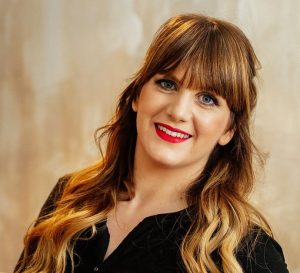
Dr Mirjana Radanović
Faculty of Sciences, University of Novi Sad, Serbia
Dr. Mirjana Radanović, associate professor, was born in 1986. She graduated from the Department of Chemistry, Faculty of Sciences, University of Novi Sad in 2005, and a year later she obtained her master’s degree. Her undergraduate thesis was awarded by the CheckMark–Ger Van Meel Foundation, while her master’s thesis was awarded by the Materials Research Society of Serbia. In October 2015, she defended her doctoral dissertation entitled „Complexes of Some Transition Metals with Schiff Bases of Aminoguanidine“ at the Faculty of Sciences, University of Novi Sad. Since 2009, she has been involved in conducting laboratory exercises in General Chemistry and Inorganic Chemistry courses. Recently, she has expanded the scope of her research to the investigation of metal-organic framework structures. She is part of a research team involved in the project „Carbon Capture by Self-Drying Schiff Base MOFs (CASCH-MOF)“, funded by the Science Fund of the Republic of Serbia within the Program for Excellent Young Researchers (PROMIS). She led a short-term project of interest for the development of scientific research activities in APV under the title „Design and Synthesis of New Porous Coordination Polymers for Carbon Dioxide Adsorption“, which represented a continuation of the aforementioned PROMIS project. She is a co-author of 32 scientific papers, which have been cited 124 times according to the SCOPUS database (total of 179 citations) excluding self-citations. Her Hirsch index is 9. She is a member of the Serbian Chemical Society, the Serbian Crystallographic Society, and the European Crystallographic Association. Since 2011, she has been a member of the Marketing Team of the Department and actively participates in the promotion of science.
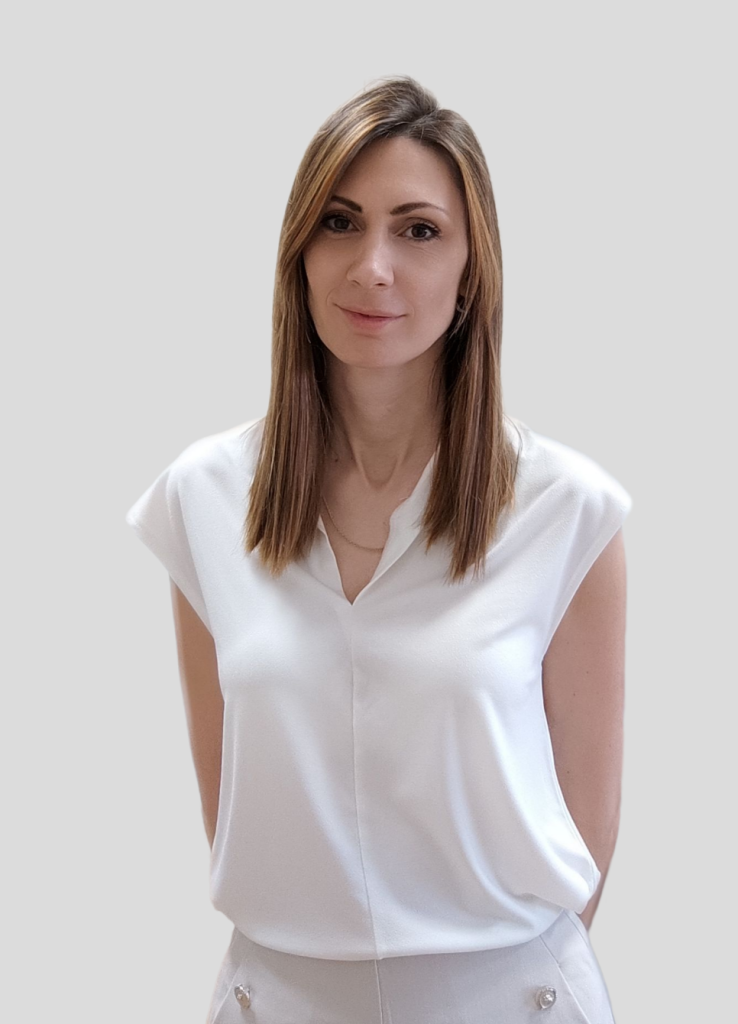
Dr Dušica Rodić
Faculty of Sciences, University of Novi Sad, Serbia
Dusica Rodic serves as an Associate Professor of Chemistry Education at the Faculty of Sciences, University of Novi Sad, Serbia. With a completed PhD in chemistry education in 2015, she imparts knowledge across diverse chemistry education topics. As a visiting professor, she has delivered lectures at Purdue University (USA), The Arctic University of Norway (Norway), and Universitas Negeri Malang (Indonesia). Her primary research focuses include the chemistry triplet relationship, mental effort evaluation, cognitive complexity, multi-tier test development and applications of knowledge space theory in chemistry education.
In addition to her academic pursuits, she actively collaborates with the Institute for the Improvement of Education of the Republic of Serbia, contributing to curricular design for secondary chemistry education. Rodic is involved in the organization of national chemistry competitions and holds positions as an associate editor for the ACS Journal of Chemical Education and an editorial board member for the Journal of Baltic Science Education. Her scholarly contributions include approximately 30 publications in journals with impact factor. She has been awarded the Serbian Chemical Society’s medal for outstanding teaching results in 2022
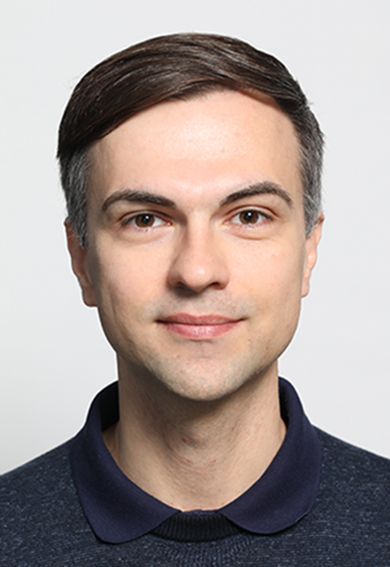
Dr Miha Bukleski
„Ss Cyril and Methodius“ University, Faculty of Natural Sciences and Mathematics, Institute of Chemistry, Skopje, RN Macedonia
Miha Bukleski is associate professor at the Institute of Chemistry, Faculty of Natural Sciences and Mathematics in Skopje. He completed his PhD in 2015 at the University in Skopje and Leipzig as part of the joint program from Alexander von Humbold under the supervision of prof. Vladimir Ivanovski and prof. Evamarie Hey-Hawkins. After finishing his bachelor studies, he has been hired as a teaching assistant at the Ss Cyril and Methodius University in Skopje. In 2021 he completed his postdoctoral research stay at the Comenius University in Bratislava and in 2022 he was a visiting researcher at the University in Ljubljana for 3 months. Miha Bukleski is an author and coauthor of 38 research and educational papers published in international journals. His main research interests are in the field of synthesis of hybrid organic inorganic perovskites, surface modifications and vibrational spectroscopy.
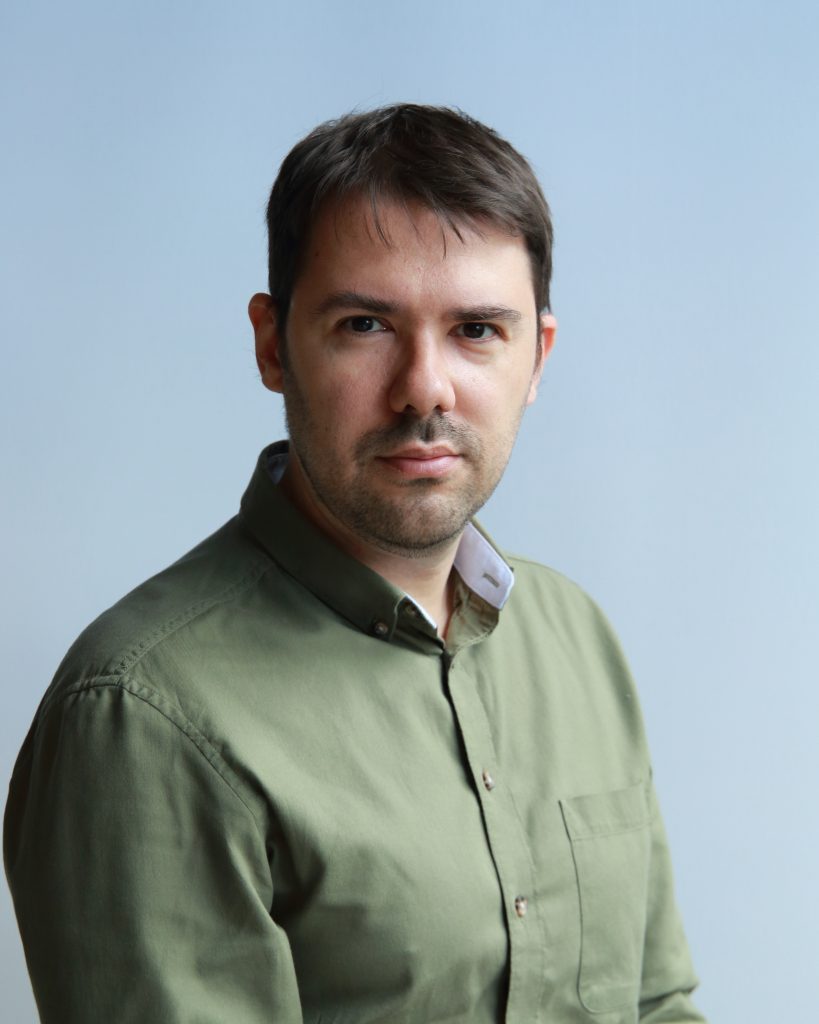
Dr Dragan Zlatković
Department of Chemistry, Faculty of Sciences and Mathematics, University of Niš, Niš, Serbia
Dr. Dragan Zlatković is a research associate at the Department of Chemistry, Faculty of Sciences and Mathematics, Niš. In 2011, he was awarded the Best Student Award at the Department of Chemistry. After completing his Ph.D., he pursued a postdoctoral stay at the University of Graz, Austria, where he focused on developing novel reactions under flow vacuum pyrolysis conditions. His current research primarily revolves around the chemistry of natural compounds and the application of natural products in organic synthesis. Additionally, he has a keen interest in utilizing programming and machine learning techniques in the field of chemistry.